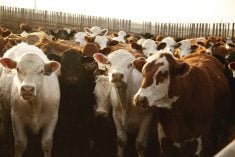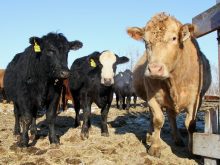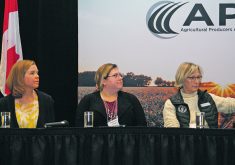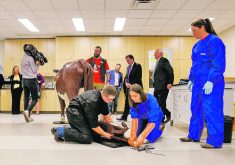Organizers say difference in tuition between subsidized and non-subsidized seats at vet college in Sask. shows wide gap
The severe and widening shortage of veterinarians in British Columbia has sparked an online petition.
“The issue of vet shortages has been going on at least since 2016 and now it’s reached critical importance that needs to be addressed,” said Chris Dolbec of Oliver, B.C., who started the petition in February.
“We’re projected to see 770 job openings for veterinarians by 2029,” she said, noting the solution is to train more veterinarians.
Read Also
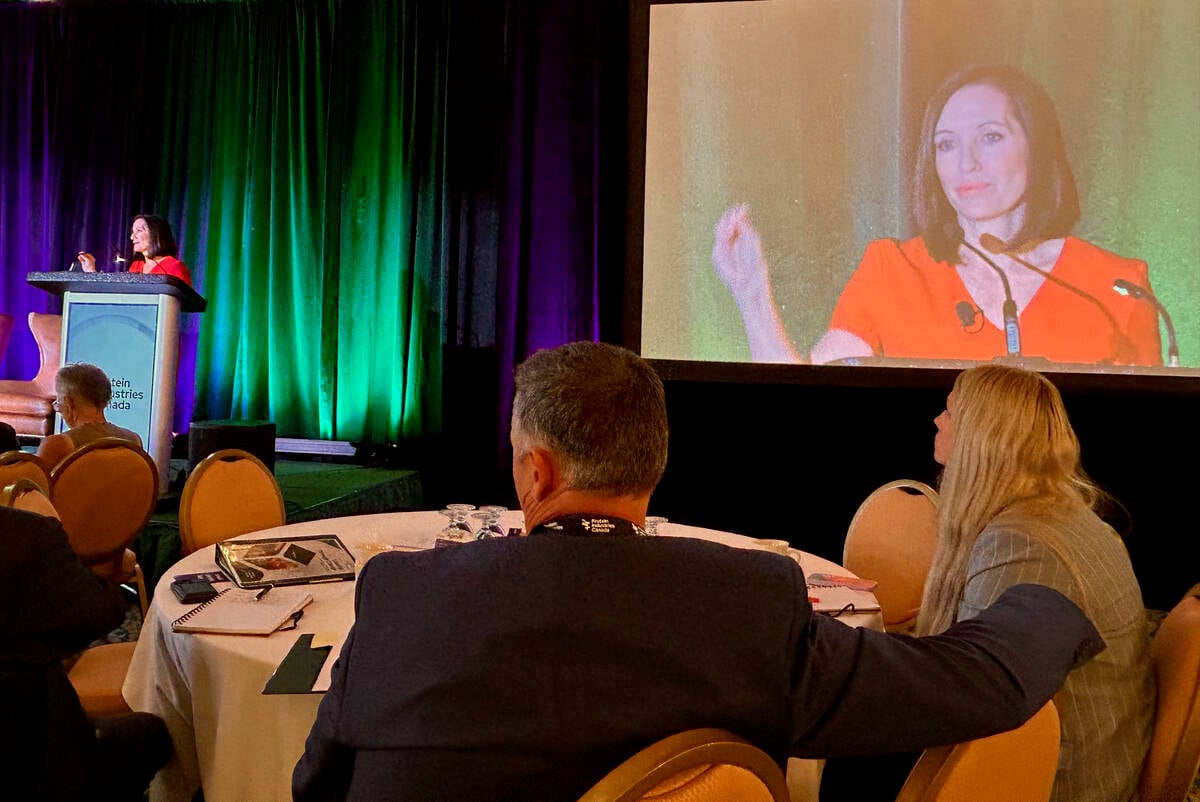
Canada told trade crisis solutions in its hands
Canadians and Canadian exporters need to accept that the old rules of trade are over, and open access to the U.S. market may also be over, says the chief financial correspondent for CTV News.
“The veterinarians B.C. does have are finding themselves overworked and are facing compassion fatigue and burnout. Pet owners and livestock producers are growing frustrated with long wait times for appointments, all while animals suffer as a result.
“This crisis is most evident in our rural communities with limited access to veterinary care.”
Dolbec wants the province’s Advanced Education and Skills Training ministry to subsidize more seats for British Columbia students at the Western College of Veterinary Medicine at the University of Saskatchewan and remove “the financial injustice between all students.”
Her daughter, McKenna Dolbec-Edmand, is a first-year student at WCVM in a non-subsidized seat.
A certain number of seats at the college are subsidized and set aside for students from each of the western provinces through an interprovincial agreement. The only option available for B.C. students is to apply to the WCVM, where 20 seats are reserved for them.
The veterinary school was previously funded through an inter-provincial agreement (IPA) among B.C., Alberta, Saskatchewan and Manitoba. Each province provided funding for about 20 of the 78 available seats.
In 2019, however, spaces opened up at the Saskatoon-based college when the Faculty of Veterinary Medicine at the University of Calgary opened and Alberta withdrew funding for its 20 WCVM seats.
Dolbec said it was a prime opportunity for B.C. to pick up those seats and train additional vets. However, the province declined and the seats were made available to students from across Canada and internationally.
Non-IPA seats have an annual tuition cost of $68,000 but provincially subsidized seats cost $11,000 per year. In 2020, B.C. students comprised 17 of the 20 non-IPA seats at the college.
“Students offered non-IPA seats are put in the position of paying six times the standard tuition at WCVM or considering international veterinary colleges at a similar cost,” said Dolbec.
“These students have the desire, the compassion, the intelligence to work in this profession being even as tough as it is, and that says a lot. And yet the province is choosing not to acknowledge the commitment and the brightest of students that we have here.
“It’s extremely frustrating from a financial point of view that they graduate side by side with the subsidized students who pay $11,000 a year. There’s no difference in the program or the calibre of education.”
In Ontario, the provincial and federal governments have announced a $4 million cost-sharing program to increase veterinary care.
In its 2022 budget, the Alberta government announced a $59 million expansion at the University of Calgary’s Faculty of Veterinary Medicine that includes plans to double student enrolment.
Dolbec-Edmand said she is frustrated that she must pay international rates to attend a Canadian school.
“It doesn’t feel great. We all work really hard to get to that position, but because the competition in B.C. is so competitive for these seats, it really drives up the grade requirements to even be considered for a seat.”
Madeleine Flahr of Courtenay, B.C., is also in her first year with one of the non-IPA seats.
“My GPA getting in was still eight percent higher than the lowest grade of a funded Saskatchewan (student), but B.C. as a province is just that much more competitive,” she said.
Flahr expects she’ll be too far in debt (about $240,000) after graduation to realize her goal of specializing in large animal veterinary practice in B.C.
“I’m so discouraged that I basically can’t afford to come back and work in my home province.
“All veterinarians are needed but large animal and producer veterinarians are needed the most. I won’t be able to go back because large animal vets make so much less money. So, I’m put in a position to either work where they pay more or go into small animal even though I don’t want to,” she said.
Dolbec’s petition has more than 2,000 signatures, about one-quarter of the goal she has set before presenting it to the provincial government.
“I want to make sure we have enough signatures on it that it is impactful so that it doesn’t just get pushed aside,” she said.
More funded seats are a partial solution but there are other needs, she added.
“They need to work on the funding and on retention of future vets and current vets. They need to think outside the box. A lot of medical professions qualify for loan forgiveness if they work in isolated communities or northern communities. Vets need to be considered an essential service.
“Why not extend that to the veterinary field? They are essentially providing health care for food security and if we’re not recognizing that, then we’re in trouble.”






